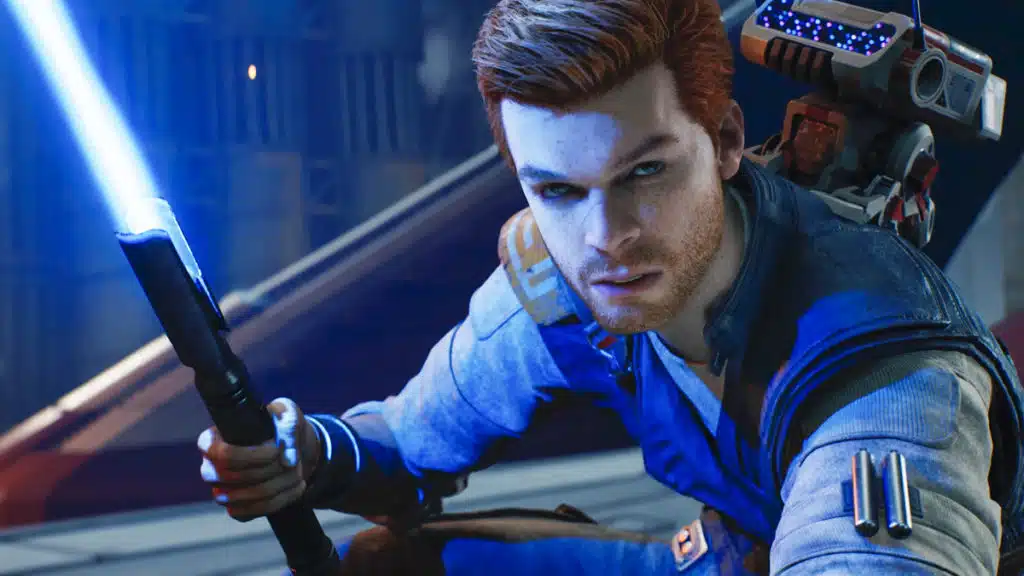
Many gamers are starting to believe that AMD is holding PC gaming back by brokering deals that prevent some of today’s hottest games (e.g., Star Wars Jedi: Survivor) from adopting support for NVIDIA’s DLSS technologies, and while the intricacies behind all of that are yet to be uncovered, AMD clearly isn’t sure how to approach the subject, having delivered a canned response yesterday after a publication shared a sizable list of triple-A, AMD-sponsored games that only include support for its own upscaling technology, FidelityFX Super Resolution. “…we give developers the flexibility to implement FSR into whichever games they choose,” AMD said, which sounds pretty cool in itself, but completely evades the actual concern. “AMD is anti-consumer & anti-gamer,” one critic says.
“To clarify, there are community sites that track the implementation of upscaling technologies, and these sites indicate that there are a number of games that support only DLSS currently (for example, see link),” an AMD spokesperson told Wccftech.
“AMD FidelityFX Super Resolution is an open-source technology that supports a variety of GPU architectures, including consoles and competitive solutions, and we believe an open approach that is broadly supported on multiple hardware platforms is the best approach that benefits developers and gamers. AMD is committed to doing what is best for game developers and gamers, and we give developers the flexibility to implement FSR into whichever games they choose.”
“NVIDIA does not and will not block, restrict, discourage, or hinder developers from implementing competitor technologies in any way,” said Keita Iida, vice president of developer relations, NVIDIA. “We provide the support and tools for all game developers to easily integrate DLSS if they choose and even created NVIDIA Streamline to make it easier for game developers to add competitive technologies to their games.
From a Wccftech report:
If we take a look at some of the most recent NVIDIA and AMD-sponsored releases, we would see that almost all NVIDIA-sponsored titles had DLSS and FSR support at or soon after launch. Every title except Battlefield 2042 had DLSS/FSR support added to it. The only reason Battlefield 2024 didn’t have FSR 2 support was that the upscaling technology wasn’t available at the time of the launch.
| Release Date | Title | Bundle Partner | FSR 1/2 Release | DLSS Release |
| 5/2/2023 | Redfall | NVIDIA | 5/2/2023 | 5/2/2023 |
| 4/28/2023 | STAR WARS: Jedi Survivor | AMD | 4/28/2023 | None |
| 4/21/2023 | Dead Island 2 | AMD | 4/21/2023 | None |
| 3/28/2023 | Last of Us Part 1 | AMD | 3/28/2023 | 3/28/2023 |
| 3/23/2023 | Resident Evil 4 Remake | AMD | 3/23/2023 | None |
| 1/24/2023 | Forspoken | AMD | 1/24/2023 | 1/24/2023 |
| 12/2/2022 | Callisto Protocol | AMD | 12/2/2022 | None |
| 12/1/2022 | Marvel’s Midnight Suns | NVIDIA | 12/1/2022 | 12/1/2022 |
| 11/30/2022 | Warhammer 40K Darktide | NVIDIA | 11/30/2022 | 11/30/2022 |
| 10/19/2022 | Uncharted Legacy of Thieves Collection | AMD | 10/19/2022 | 10/19/2022 |
| 8/23/2022 | Saints Row | AMD | 11/29/2022 | None |
| 8/12/2022 | Marvel’s Spiderman Remastered | NVIDIA | 8/12/2022 | 8/12/2022 |
| 5/25/2022 | Sniper Elite 5 | AMD | 5/25/2022 | None |
| 3/30/2022 | Death Stranding Directors Cut | NVIDIA | 9/28/2022 | 3/30/2022 |
| 3/24/2022 | Ghostwire Tokyo | NVIDIA | 3/24/2022 | 3/24/2022 |
| 11/15/2021 | Halo Infinite | AMD | None | None |
| 10/26/2021 | Marvel’s Guardians of the Galaxy | NVIDIA | 2/11/2022 | 10/26/2021 |
| 10/7/2021 | Far Cry 6 | AMD | 10/7/2021 | None |
| 10/6/2021 | Battlefield 2042 | NVIDIA | None | 10/6/2021 |
| 5/7/2021 | Resident Evil Village | AMD | 7/19/2021 | None |
| 11/23/2020 | World of Warcraft Shadowlands | AMD | None | None |
